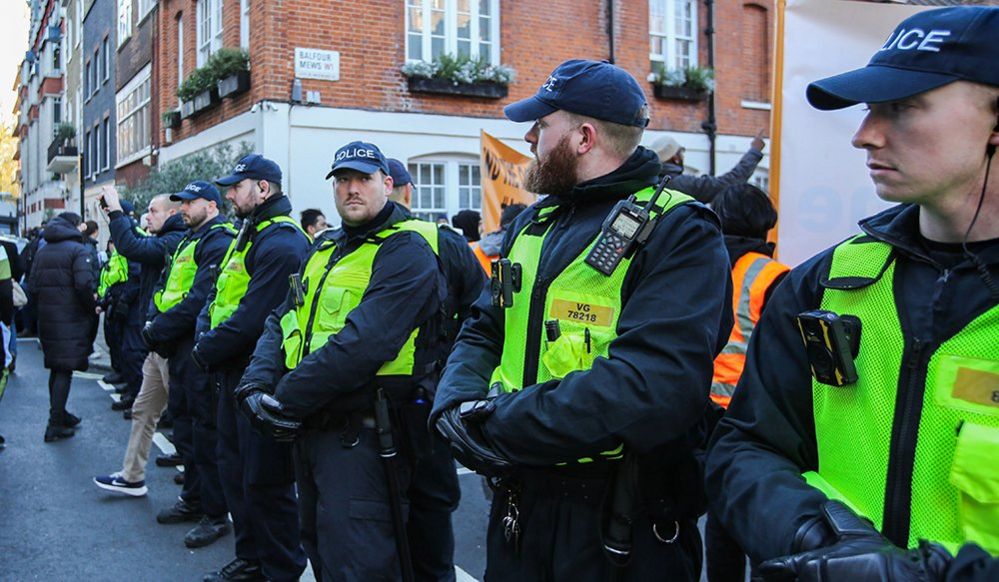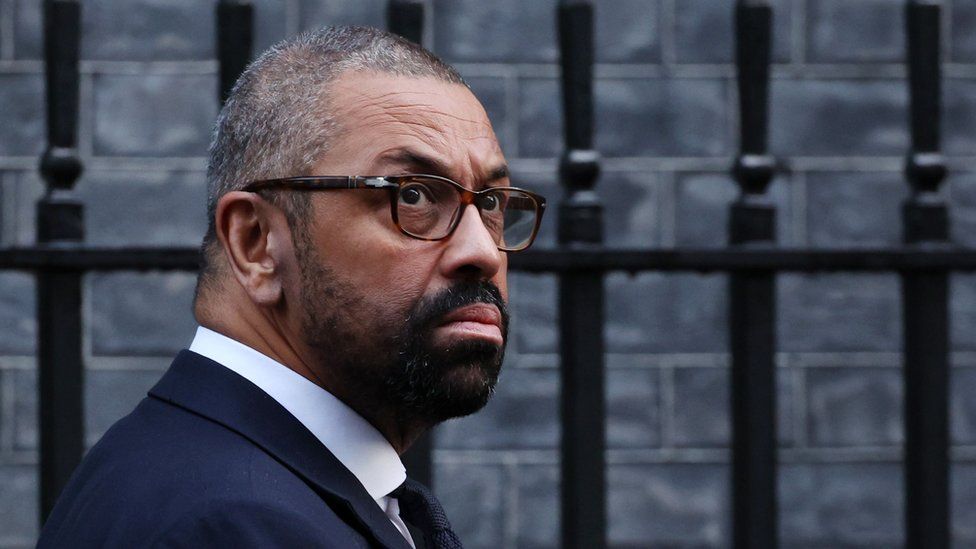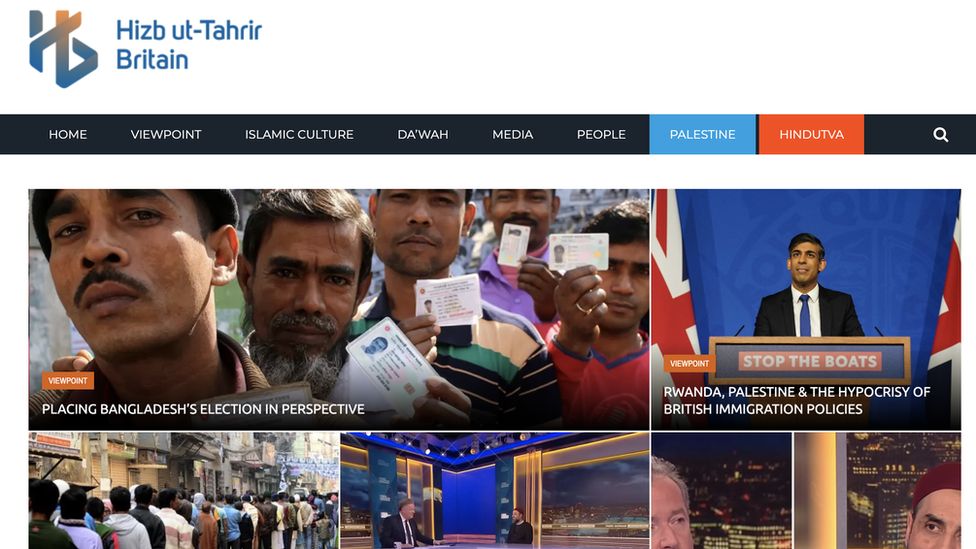Home Office to ban Hizb ut-Tahrir as terror group

One of the most controversial Islamist groups in the UK, Hizb ut-Tahrir, is to be banned as a terrorist organisation, accused of praising the Hamas attacks.
Home Secretary James Cleverly said the group was “antisemitic” and “actively promotes and encourages terrorism”.
The ban under UK terrorism laws comes after followers were accused of chanting “jihad” at a pro-Gaza rally.
It is an international organisation long active in the UK but it has always denied links to violence.
The banning order was laid before Parliament on Monday and will come into force on Friday, unless it is voted down.
That means that anyone belonging to, inviting support for or displaying material which shows public support for the group will be breaking the law.
There has been no comment yet from its British leadership.
Last October, followers organised a rally in support of Palestinians parallel to the much larger official pro-Gaza marches.

‘Face consequences’
A video of the sparsely-attended rally on 21 October showed a man chanting “jihad” and Scotland Yard later said it would take no further action.
The word ordinarily means an inner struggle for justice, under traditional Islamic theology, but is also regularly used as a call for holy war by terrorist groups.
- Glorify Hamas and you break law – terror watchdog
- Gaza war: When can protesting be illegal?
Announcing the banning order, Mr Cleverly said: “Hizb ut-Tahrir is an antisemitic organisation that actively promotes and encourages terrorism, including praising and celebrating the appalling 7 October attacks.
“Proscribing this terrorist group will ensure that anyone who belongs to and invites supports for them will face consequences. It will curb Hizb ut-Tahrir’s ability to operate as it currently does.”
International political movement
The most serious offences linked to banned organisations can result in up to 14 years in jail. Police can also seize any property associated with a group once it has been banned.
Hizb ut-Tahrir was founded in 1953 as an international political movement calling for a single Islamic government across the Muslim world. It has branches in at least 32 countries including the UK – and the banning order means that all of those are now banned.
Ministers and security officials have repeatedly considered banning the group in the UK in the past – and former prime minister Lord Cameron promised to do so in 2010.
However, lawyers had previously told the government that the organisation had not crossed the line of breaking terrorism laws.

The Home Office’s change of mind came after former home secretary Suella Braverman asked for a review of the group’s activities following the October rally.
The government says that since the 7 October attacks, Hizb ut-Tahrir has described Hamas fighters as “heroes” on its central website – and such praise amounts to promoting and encouraging terrorism.
It has also been repeatedly accused of celebrating attacks against Israel and Jews more widely.
Shadow home secretary Yvette Cooper supported the proposed ban.
She told the Commons: “It is right that the government has looked urgently at the evidence and intelligence information available to them about the threat posed by Hizb ut-Tahrir, and we welcome and support the decision to proscribe them.”
Former prime minister Sir Tony Blair looked at banning the group after the 2005 London bombings – but officials concluded that it was not involved in terrorism.
Other countries that have banned the group include Germany, Egypt, Bangladesh, Pakistan and central Asian and Arab nations.
Its leaders in the UK have previously said that these bans were politically motivated and not supported by evidence of involvement in terrorism.
Related Topics
- Israel-Gaza war
- Home Office
- Antisemitism
- James Cleverly
Published at Mon, 15 Jan 2024 15:09:44 +0000
